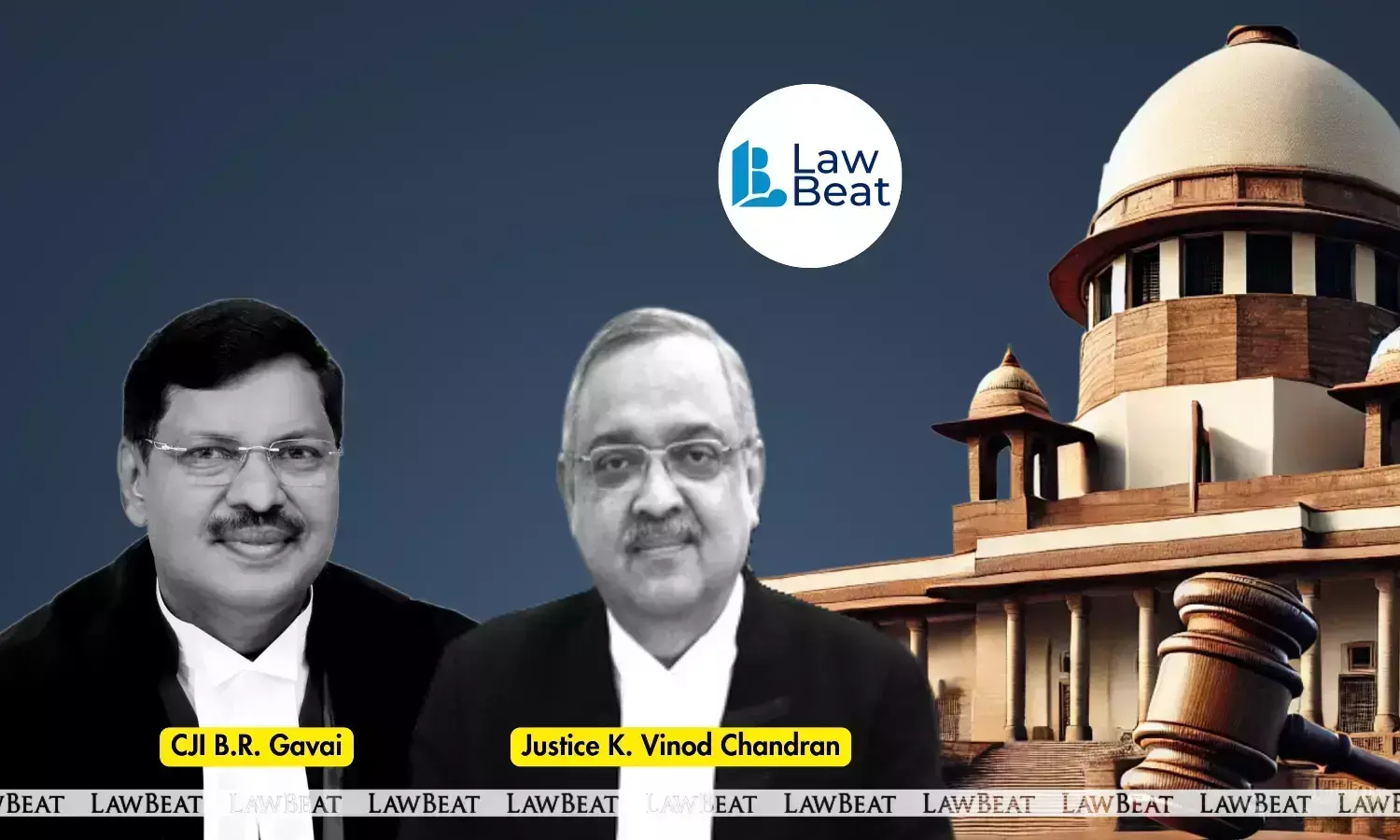Magistrate Empowered to Direct Voice Sample Even Without Explicit Provision in CrPC: SC

The Supreme Court dismisses arbitration plea citing delay and limitation for appointment.
The Supreme Court on October 13, 2025, held that even in the absence of an express provision under the Code of Criminal Procedure (CrPC), a Judicial Magistrate possesses the authority to direct a person to furnish a voice sample for the purpose of investigation in a criminal case.
The Court said this power has been recognized by precedent and now finds specific statutory recognition under Section 349 of the Bharatiya Nagarik Suraksha Sanhita (BNSS), 2023.
A Division Bench of Chief Justice B.R. Gavai and Justice K. Vinod Chandran allowed an appeal against the Calcutta High Court’s order that had set aside a Judicial Magistrate’s direction requiring a man to provide a voice sample to the Investigating Officer probing allegations of threats to a witness in a criminal case.
The Supreme Court found that the High Court erred in refusing to follow binding precedent merely on the ground that a similar issue had once been referred to a larger bench.
The case arose out of the investigation into the death of a 25-year-old woman on February 16, 2021. Allegations of harassment and torture at her matrimonial home were met with counter allegations that the deceased and her parents had misappropriated cash and jewellery belonging to the husband’s family.
Subsequently, the husband’s cousin lodged a complaint, naming the deceased’s parents as accused. During investigation, police received information that a person acting as an agent of the deceased’s father had threatened a witness who had disclosed details of the alleged extortion attempt.
The Investigating Officer sought a direction from the Magistrate to obtain a voice sample from the alleged intermediary to verify the recorded threats.
The Magistrate allowed the request, but the Calcutta High Court set aside the order, holding that since the CrPC did not contain any provision authorising the Magistrate to compel a person to give a voice sample, and since the issue had been referred to a larger bench, such power could not be exercised.
Before the Supreme Court, counsel for the respondent argued that the Magistrate’s order was passed under the CrPC, which lacked any provision akin to Section 349 of the BNSS, 2023. It was submitted that compelling a person, especially a witness, to furnish a voice sample could infringe the right against self-incrimination under Article 20(3) of the Constitution, as the comparison might later result in the person being treated as an accused.
Rejecting these submissions, the Supreme Court referred to its earlier judgment in Ritesh Sinha v. State of Uttar Pradesh (2019) 8 SCC 1, where it was held that despite the absence of an explicit statutory provision, a Judicial Magistrate could direct a person to provide a voice sample for investigation purposes. The Bench noted that the Court in Ritesh Sinha had consciously used the words “a person” rather than restricting the power to cases involving accused individuals, thereby recognising that the rule against self-incrimination extends equally to witnesses and accused persons but does not prohibit collection of non-testimonial material evidence.
The Bench recalled that Ritesh Sinha had relied on the Constitution Bench decision in State of Bombay v. Kathi Kalu Oghad (AIR 1961 SC 1808), which held that specimen handwriting, signatures, or fingerprints did not constitute self-incriminatory testimony. The Court quoted that “a specimen handwriting or signature or finger impressions by themselves are no testimony at all, being wholly innocuous... They are only materials for comparison to lend assurance to other evidence.”
Following this principle, the Supreme Court held that the collection of a voice sample stood on the same footing.
The Bench observed that Ritesh Sinha had already conferred power on Magistrates to order voice samples until the legislature introduced an express provision, and that this gap has now been filled by Section 349 of the BNSS. It said, “We specifically note that this Court had not spoken only of the accused and specifically employed the words ‘a person’, consciously because the rule against self-incrimination applies equally to any person whether he be an accused or a witness.”
Clarifying further, the Court said that whether the case was governed by the CrPC or the BNSS was immaterial, since under both legal frameworks, the Magistrate’s authority stood affirmed, either by precedent or by statute; “If it is the CrPC, the three-judge bench decision in Ritesh Sinha permits the same on the identical principle adopted by this Court in Kathi Kalu Oghad to permit furnishing of handwriting, signature and finger impressions. If it is the BNSS that is applicable, then there is a specific provision enabling such sampling,” the Bench explained.
The Court underscored that furnishing a voice sample does not amount to testimonial compulsion. “Mere furnishing of a sample of the fingerprint, signature or handwriting would not incriminate the person as such,” it said; “It would have to be compared with the material discovered on investigation, which alone could incriminate the person giving the sample, which would not fall under a testimonial compulsion, thus not falling foul of the rule against self-incrimination.”
Allowing the appeal, the Supreme Court reversed the Calcutta High Court’s order and restored that of the Magistrate, directing the respondent to comply with the order and provide the voice sample to the Investigating Officer.
Case Title: Rahul Agarwal v. The State of West Bengal & Anr
Bench: Chief Justice B.R. Gavai and Justice K. Vinod Chandran
Date of Judgment: October 13, 2025
